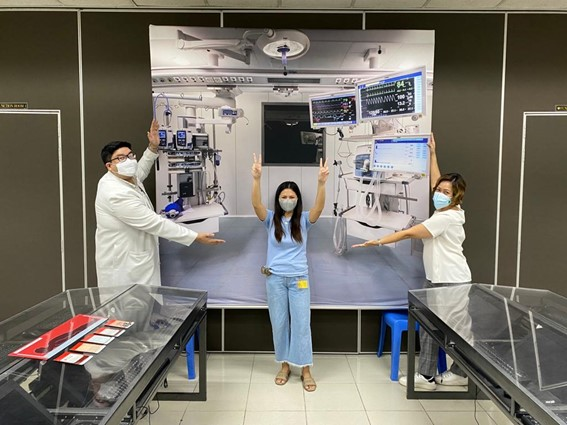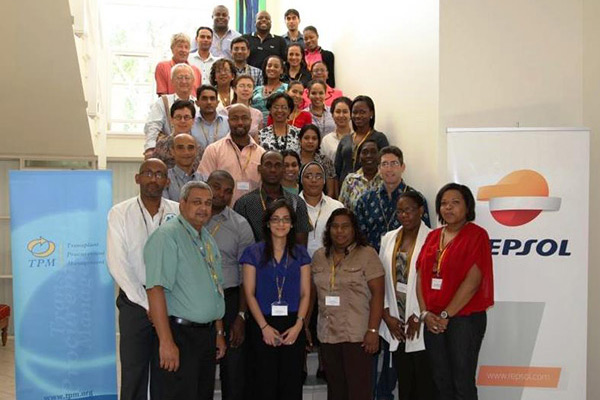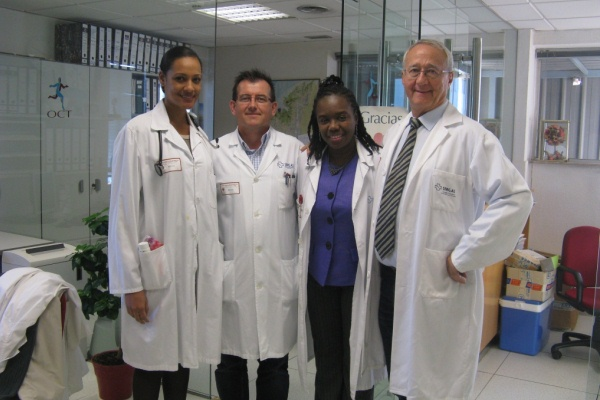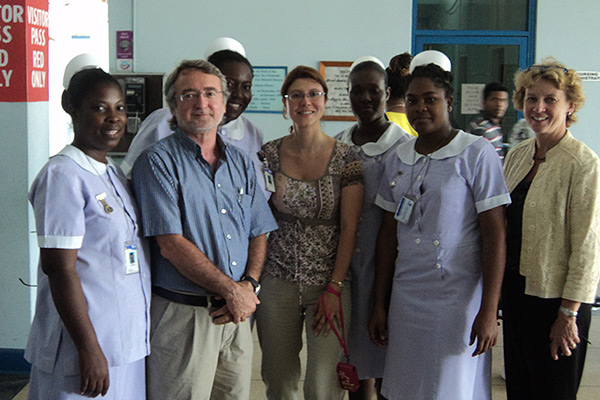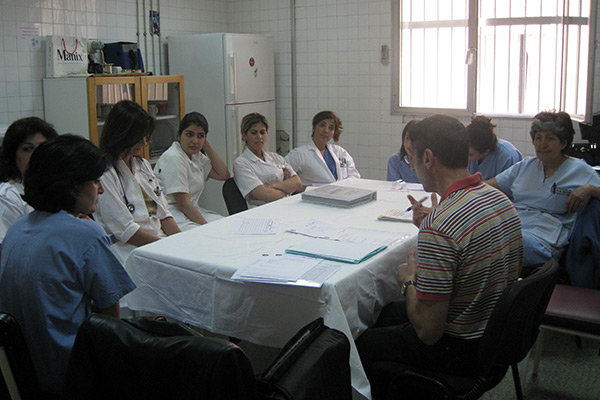DTI Foundation offers consultancy in organ donation addressed to institutions, regions and countries to promote the creation of self-sufficient transplant programs. This service helps to find the best practices that adapt to each country’s reality, through a comprehensive model and the knowledge from our experts’ network.
This dynamic program has been designed to be adapted to the local needs allowing a complete or modular implementation of its steps.
DIAGNOSIS STUDY
Data collection and analysis of the current situation.
CAPACITY BUILDING
Training with the basic knowledge in organ donation.
DONOR DETECTION MAXIMIZATION
Identification and early potential donors’ referral.
ORGANIZATIONAL FRAMEWORK
Evaluation of infrastructure and workforce.
CASE REVIEW
Activity follow-up and monitoring.
HOSPITAL AUDITS
Evaluation, improvement, organization.
Data collection and analysis of the current situation.
The diagnosis study aims at identifying organizational, structural and educational needs that will be analyzed and foreseeing solutions that can be implemented in different phases.
Data collection is done by means of the Organ Donation Diagnostic Surveys (ODDS) and personal interviews with the main stakeholders: National/regional authority, ICU team, Organ donation team and Transplant team.
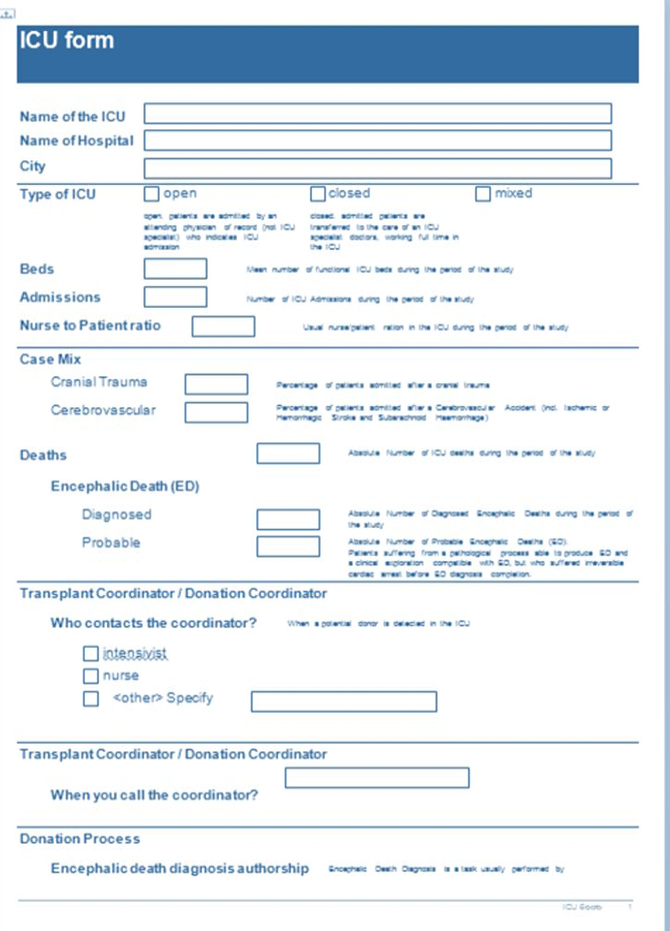
Training with the basic knowledge in organ donation.
To ensure organ donation is consolidated in the national healthcare system, it needs to be professionalized. The main stakeholders who will be in charge of developing the ODUs (Organ Donation Unit) need to be identified and trained. This is done through our internationally recognized TPM training.
Identification and early potential donors’ referral.
One of the main reasons for the lack of donors is the deficiency in reporting potential donors to the donor coordinator responsible. By increasing hospital awareness for organ donation, and putting in place specific strategies to identify and follow-up potential donors, hospital teams will increase their detection rates and include organ donation as part of the end of life care.
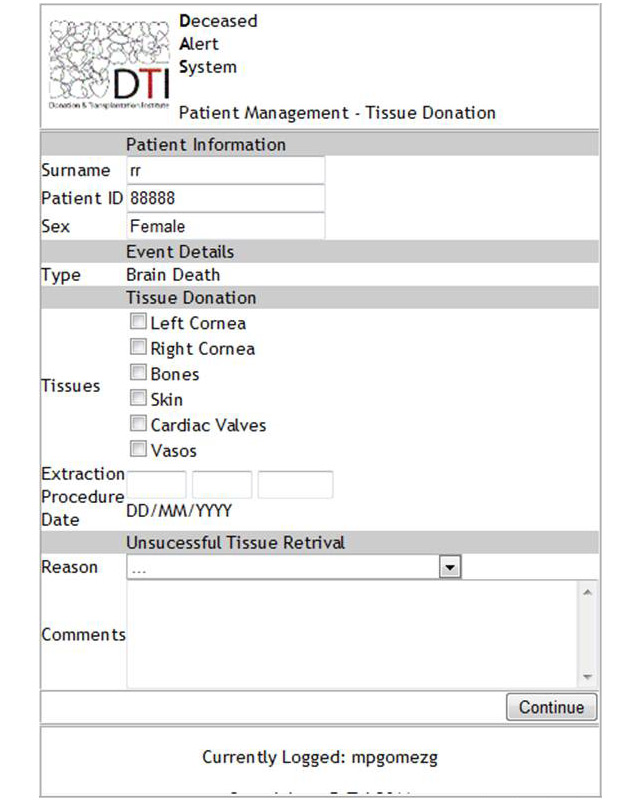
Evaluation of infrastructure and workforce.
This analysis aims at improving efficiency and effectiveness of the system, focusing on the professionals’ and management factors.
Clear medical activities, responsibilities and suitable professional roles are crucial to foster organizations sustainability and development.
Customized training is designed for healthcare professionals according with the educational needs identified in alignment with the donation critical pathway.
Activity follow-up and monitoring.
To assist the hospitals in their first steps from their organ donation units, or helping ongoing units improve their performance, a monthly review methodology is implemented.
DTI provides a digital tool to record the unit’s activity and measure performance indicators called Quorum. This tool helps the hospital team have a registry of their activity to monitor their performance, identify the reasons for losing potential donors and discuss critical cases with our experts.
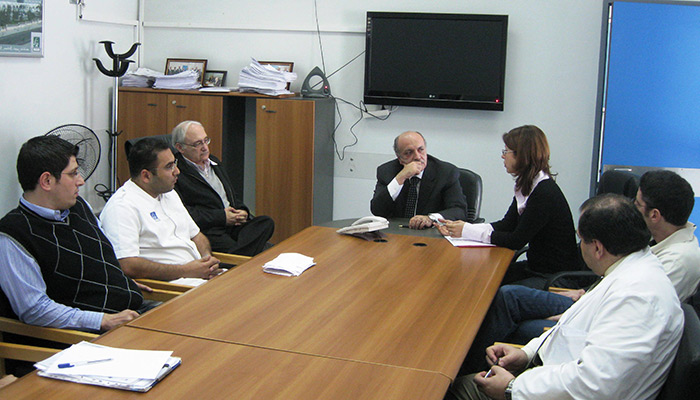
Evaluation, improvement, organization.
Independently from which Quality Management System is used, the most important aspect is to apply the Continuous Cycle of Quality Improvement. This means an ongoing effort to identify and abolish causes of mistakes and problems. Through this effort, organizations will improve quality and efficiency. This improvement cycle is known as PDCA (also “Shewhart cycle” or “Deming cycle”) and includes the four steps: Plan – Do – Check – Act (PDCA).
By implementing the PDCA methodology, it aims to improve the quality of the donation program. International and national experts will visit the institutions involved to retrospectively review cases selected from the activity registry, to identify potential donor loses, and interview the stakeholders involved in the process. A final report will be provided with improvement measures to improve the organ donation activity and an improvement plan discussed with the local team.
